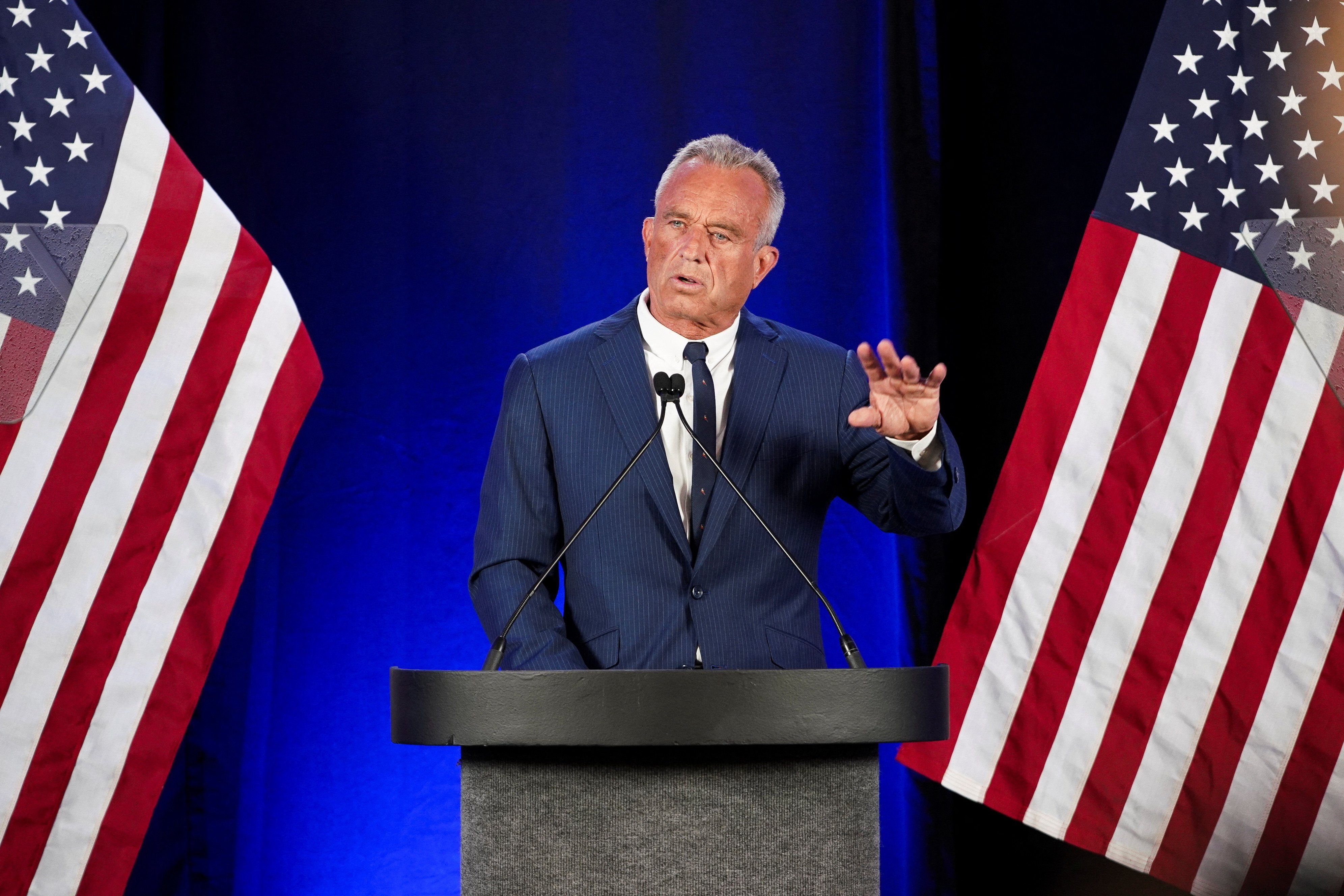Robert F Kennedy endorsed Donald Trump after suspending his independent campaign for president on Friday. In his speech, he thanked his supporters and accused the Democratic Party of “abandoning democracy” by nominating Kamala Harris without a primary.
His endorsement of Trump was not entirely enthusiastic, with Kennedy saying that the decision to back him was “a difficult sacrifice for my wife and children.” He implied that if Trump wins the White House, he would be given a role that would allow him to “staff agencies with honest scientists,” and “reform the entire food system.”
Kennedy’s campaign was a potluck of populist economics, anti-war leanings, and government skepticism that once had the potential to be a scion for both parties. He peaked in momentum in the fall, when he began to get on state ballots, often polling in the double digits. But as an independent, he had to get on each state ballot independently, an incredibly time consuming and costly effort – his running mate Nicole Shanahan, a wealthy Silicon Valley investor, has sunk more than $14 million into the campaign alone.
By August, his campaign was out of money and down to 5% in the polls, as much of his support came from voters who wanted an alternative to Trump or Joe Biden. Many of those voters have gone back to the Democratic Party now that Harris is in the race.
What now? Trump is expected to gain one or two points from Kennedy dropping out, as well as pick up a few of his donors. 2% of Democrats, 3% of Republicans, and 12% of independents supported Kennedy. We will be watching to see whether the independents heed Kennedy’s calls to vote for Trump, though it is likely that many may choose to not vote altogether.
